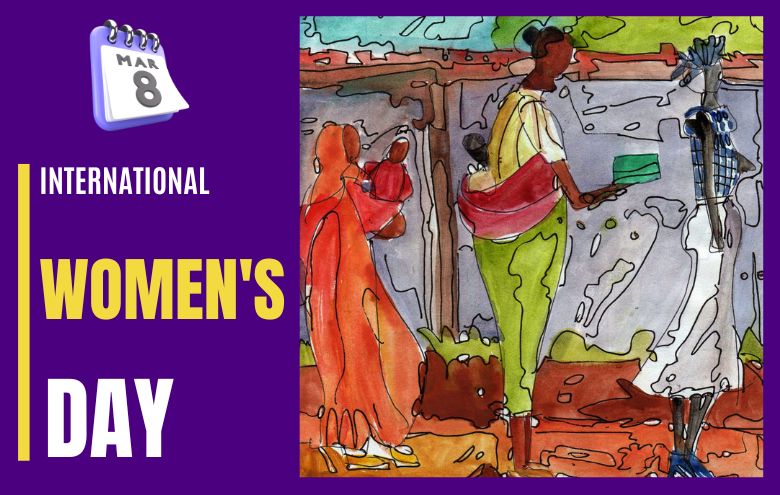From Life Experience to Action

Portraits of African Women Struggling to Survive Extreme Poverty
To mark International Women’s Day this week, we are highlighting some life stories of African women. These articles were written by regional Volunteer Corps teams with women involved in ATD Fourth World.
The aim of these portraits is to share with ATD Fourth World members and others the poignant accounts and remarkable courage of African women in their struggle to survive extreme poverty.
In Africa, as elsewhere, gender inequality does not only emerge in adulthood. It takes root from early childhood, influenced by parents and the process of socialisation.
Through the life experiences of Mariam Sankara, Delphine,and Francine, we are confronted not only with sometimes painful realities but also with the determination and resistance of these women. Each of these accounts attests to the urgent need to address gender inequality and discrimination. They call for collective action against injustice and for the promotion of equal rights for all women.
Each account represents a call to recognise the fundamental rights of women, whether in education, inheritance, political participation, or opposition to forced marriages.
We hope that these portraits will inspire people to reflect deeply on the condition of women in Africa and encourage them to take action for equality and dignity.
By Bonfils Irakiza, ATD Fourth World Volunteer Corps member
Mariam Sankara is an ATD Fourth World activist in Burkina Faso. For many years she has worked unwaveringly to overcome poverty. This has included her dedication to supporting the widows of her community and advocating for their rights. All this while running her own business to provide for her family. Sankara’s outstanding commitment to people facing difficult situations deserves recognition.
The injustices faced by widows
As Sankara explains:
“Widows experience a lot of inequality when their husbands die. When a woman loses her husband, she is often marginalised and even abandoned by her in-laws. When such a circumstance arises, the woman finds it difficult to provide for her children. A widow without a stable source of income finds it difficult to get by financially.”
From life experience to concrete steps
Sankara’s own experience as a widow forged her determination to speak out in the face of injustice. Below, she discusses her motivation to actively support women in difficult situations.
“The situation of widows affects me a lot. Having experienced this myself before remarrying, this really shaped me. I decided not to remain silent in the face of injustices and to get involved with widows to support them as best I can.”
A bridge to support
Over the years, Sankara has gained in-depth knowledge of the support structures available for people in difficult situations. She assists the widows in her community by using this expertise to identify resources and to offer guidance on how to effectively utilise them. Her efforts have yielded much needed results, such as helping to find schooling for their children. When Sankara learns of a widow in difficulty, she works with her to determine the best course of action. and accompanies her to the organisation where her needs can be properly addressed.
In this way, Sankara has become a bridge between vulnerable women and the structures that can help them:
“As soon as I discover that an association offers assistance, I communicate this information to all the women I know so that they can contact the association. Recently, an organisation that could assist widows with at least five children reached out to me. I informed a woman who then asked for help and received it. She later contacted me to express her gratitude.”
Taking steps towards a supportive community
Having also lost her husband before remarrying, Sankara embodies a steadfast commitment to actively supporting widows in Burkina Faso and standing against the injustice of poverty. Her ability to quickly organise resources makes her a vital link between widows and aid structures. She is a role model of determination and support. Her work highlights the importance of local activism to improve the living conditions of widows.
Every step taken, and all her encouragement and assistance, goes a long way to building a more equitable and supportive community.

